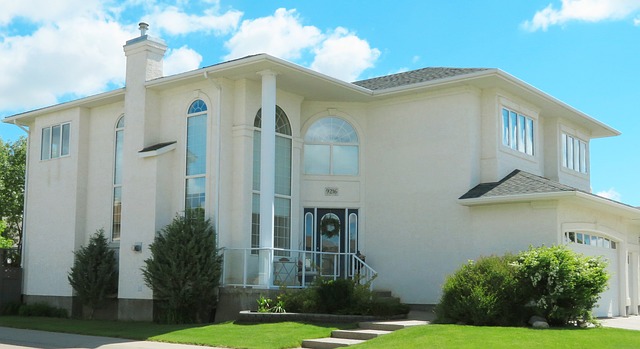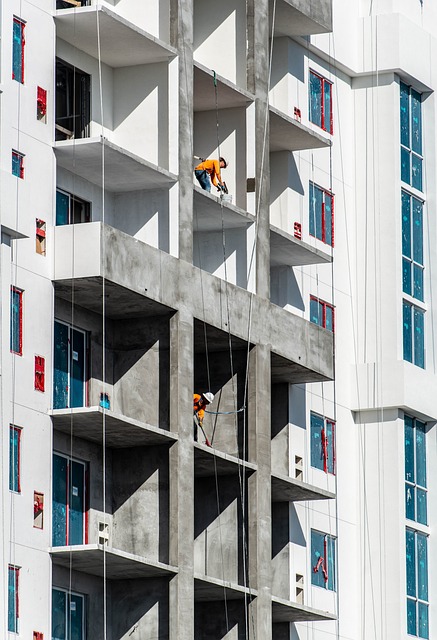In Singapore's property market, distinguishing between Executive Condos (ECs) and Housing & Development Board (HDB) flats is crucial for homebuyers. HDB flats are the primary form of public housing, offering affordable, leasehold units with a 99-year tenure. ECs cater to couples who meet certain eligibility criteria, acting as a transitional housing option that upgrades to full private condominium status after a five-year occupancy period. This upgrade can influence the valuation and marketability of ECs. The Executive Condominium Price typically falls between HDB flats and private condos, offering an accessible middle ground for those upgrading from public to private housing without a significant increase in cost. When considering the Executive Condominium Price, factors such as location, development age, size, layout, completion stage, market conditions, and available government grants must be taken into account. These elements affect not only the current price but also the potential long-term investment value of the property. Prospective buyers should carefully evaluate all these aspects to make an informed decision that suits their financial situation and aligns with their housing goals.
When navigating the Singaporean property market, discerning homeowners face a choice between two prominent options: Executive Condos (ECs) and HDB flats. This article delves into the nuanced differences, eligibility, pricing, and long-term investment potential of both ECs and HDB flats. We’ll explore executive condo price considerations, affordability through subsidy schemes for HDB flats, and the resale market dynamics. Each housing type offers unique benefits, from location and design to amenities and facilities, which can significantly influence your living experience. With a comprehensive look at financing options, lease decay implications, government policies, and real-life case studies, this guide equips you with the knowledge to make an informed decision tailored to your lifestyle and budget. Whether you’re a first-time buyer or considering a resale unit, understanding the intricacies of ECs versus HDB flats is crucial for a sound investment.
- Understanding the Distinction Between Executive Condos and HDB Flats
- Eligibility Criteria for Buying an Executive Condo vs. HDB Flat
- Executive Condo Price Considerations: Factors Influencing Costs
Understanding the Distinction Between Executive Condos and HDB Flats

When considering housing options in Singapore, understanding the distinction between Executive Condos (ECs) and Housing & Development Board (HDB) flats is crucial for prospective homeowners. HDB flats are public housing apartments offered by the Singapore government to provide affordable living for the majority of its residents. They come with a 99-year leasehold tenure, which means that ownership is essentially a long-lease rather than freehold. The prices of these flats are significantly lower compared to private properties and ECs, making them accessible to a broader segment of the population. On the other hand, Executive Condos are a hybrid housing option designed for couples who meet certain eligibility criteria, such as one being a Singapore citizen and the other a permanent resident or a Singaporean who has fulfilled National Service liability. These conditions apply within the first five years from the date of the EC’s launch. Upon satisfying the mandatory minimum occupancy period of five years, ECs will automatically upgrade to private condominium status. This transition can affect their valuation and marketability. Prospective buyers considering executive condo price points should weigh these factors against their long-term housing goals. The price of ECs is typically higher than that of HDB flats but lower than pure private condos, reflecting the middle ground they occupy in the property market. This makes them an attractive option for upgraders looking to transition from public to private housing without a substantial increase in cost. When evaluating executive condo price, it’s important to consider the future benefits of owning such a property, including the potential for appreciation if the unit is sold as a private condo after the mandatory occupation period.
Eligibility Criteria for Buying an Executive Condo vs. HDB Flat

When considering the difference in eligibility between purchasing an Executive Condominium (EC) and a Housing & Development Board (HDB) flat, understanding the specific criteria is crucial for prospective homeowners. For Singaporean couples, the first step to buying an EC is to satisfy the Minimum Occupation Period (MOP), which requires at least 5 years of living in another flat before they can apply for an EC. This contrasts with HDB flats, where eligible applicants, including first-time buyers, singles, or families, can purchase a resale or new flat directly from the HDB without any MOP restrictions.
Financial eligibility also differs between ECs and HDB flats. Both options have income ceilings to qualify for a loan from financial institutions, ensuring that the Executive Condominium Price remains accessible to middle-income families. However, ECs offer a more diverse price range compared to HDB flats due to their larger size and amenities. Moreover, the pricing of ECs can be influenced by their location and the facilities they offer, potentially making them a more attractive option for those seeking a balance between public housing and private condominium living. It’s important to consider the resale value and market trends when evaluating both types of properties, as these factors can impact your investment over time.
Executive Condo Price Considerations: Factors Influencing Costs

When considering the purchase of an Executive Condominium (EC) in Singapore, potential homeowners must weigh various factors that influence its price. Executive Condo Price is a significant consideration for buyers as it reflects the cost-effectiveness compared to both private condominiums and HDB flats. The pricing of ECs is influenced by several key elements. Firstly, location plays a pivotal role; ECs situated in mature estates or close to city centers tend to command higher prices due to their accessibility and the lifestyle they offer. Secondly, the age of the development also affects Executive Condo Price, with newer units typically fetching higher prices, assuming all other factors are equal. The size and layout of the unit further impact the cost, as larger or more uniquely designed units can be priced significantly differently from standard configurations. Additionally, the stage of development and completion can sway market rates, with uncompleted units often priced differently than those that are ready for immediate occupation. Market demand and supply dynamics also exert considerable influence on Executive Condo Price, with factors such as population growth, economic conditions, and investment sentiment affecting pricing trends. Lastly, the various grants and schemes available to eligible buyers can offset part of the purchase price, making ECs a more financially viable option compared to market-rate private properties. Prospective buyers should carefully consider these factors when evaluating Executive Condo Price to make an informed decision that aligns with their financial planning and long-term housing goals.
navigating the housing market in Singapore, understanding the nuanced differences between an Executive Condo (EC) and a Housing & Development Board (HDB) flat is crucial for prospective homeowners. This article has demystified the eligibility criteria and price considerations that distinguish ECs from HDB flats, ensuring readers are well-equipped to make informed decisions. Whether your goal is to upgrade from a public to a private dwelling or to enter the property market for the first time, the insights provided here will serve as a valuable guide in your home ownership journey. When considering executive condo price, it’s essential to weigh the unique benefits and financial implications of each option against your personal circumstances. With this knowledge at hand, you can confidently choose the right living space that aligns with your aspirations and financial planning.



